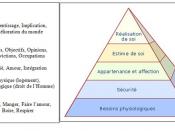Work Motivation
What is Motivation?
When a person is spoken of being motivated it is usually meant that the person works "hard," "keeps at" his or her work, and directs his or her behaviour toward appropriate outcomes
Why Study Motivation?
Motivation is one of the most traditional topics in organizational behaviour, and it has interested managers, researchers, teachers, and sports coaches for years
Motivation has become more important in temporary organizations as a result of the need for increased productivity to be globally competitive as well as the rapid changes that contemporary organizations are undergoing
Many motivation theories
Recognize human diversity and consider that the same conditions will not motivate everyone
Able to explain how it is that some people seem to be self-motivated, while others seem to require external motivation
Recognize the social aspect of human beings
Basic Characteristics of Motivation
Motivation - the extent to which persistent effort is directed toward a goal
Effort
The strength of a person's work-related behaviour, or the amount of effort the person exhibits on the job
Persistence
The persistence that individuals exhibit in applying effort to their work tasks
Direction
Effort and persistence refer mainly to the quantity of work an individual produces
The persistent effort channelled in a direction that benefits the organization
Motivation means working smart as well as working hard
Goals
All motivated behaviour has some goal or objective toward which it is directed employee goals might include productivity , good attendance, or creative decisions
Employees can also be motivated by goals that are contrary to the objectives of the organization (sabotage, embezzlement)
â channelling their persistent efforts in directions that are dysfunctional for the organization
Extrinsic and Intrinsic Motivation
Intrinsic motivation - motivation that stems from the direct relationship between the worker and the task; it is usually...


